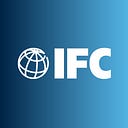By Philippe Le Houérou
French poet Alfred de Musset famously said, “Il vaut mieux faire que dire” (Doing is better than saying).” I’ve always tried to live by those words, and they have served me especially well during my time as CEO of the International Finance Corporation (IFC).
When I joined IFC in March 2016, my objective was to push IFC deeper into poor and fragile countries, where we could leverage the strength of the private sector to create the economic growth and quality jobs that these countries so desperately need.
IFC has been putting this idea into action over the past four years, shifting our business model to a more deliberate and systematic approach to market development. Under our IFC 3.0 strategy, we have created the necessary building blocks to increase the number of bankable projects in challenging markets.
Among our most important steps have been establishing dedicated Upstream teams with project development and industry expertise, increasing our presence in the field, introducing innovative financing instruments to help mitigate risk, preparing new country strategies that identify opportunities, and developing closer collaboration with the World Bank.
IFC has relied also on the strong support of our shareholders, of which Japan is among the most important. I highly appreciate Japan’s role in forging a consensus among shareholders for the IFC capital increase to proceed. Already our second largest shareholder, Japan showed great support and leadership in becoming the largest contributor to the capital increase.
One of the lasting memories from my time as CEO was representing the World Bank Group at TICAD 7 in Yokohama last summer. TICAD, which Japan began in 1993, aligns with IFC’s mission of advancing African development. TICAD continues to evolve and I would like to commend former Japanese Prime Minister Abe for his efforts to highlight the role of the private sector in Africa starting with TICAD 5, and for increasing the involvement of Japanese and African private sector participants from TICAD 6.
The Japanese private sector, as well as development finance institutions like the Japan International Cooperation Agency (JICA) and Japan Bank for International Cooperation (JBIC), have long been key business development partners for IFC — working with us to co-finance projects across all our regions of operation and industries.
In fact, one of the last agreements I signed as CEO was with Nippon Export and Investment Insurance (NEXI) to jointly advance private-sector-led development in poor and fragile countries. Meanwhile, Japan is a major market for IFC’s funding operations. It consistently delivers over 10% of IFC’s total funding annually, with investments in Uridashi bonds denominated in major and emerging market currencies, as well as green and social thematic bonds.
We also experienced a major breakthrough in impact investing in 2019 when JICA became the first Japanese signatory to the Operating Principles for Impact Management, which IFC and other impact investors established in 2019 and now has over 100 signatories. These groundbreaking standards will bring much-needed discipline, transparency, and credibility to the impact investing market.
Lastly, it is important to recognize the invaluable contributions of Japanese staff to IFC. During my time as CEO, I made it a priority to enhance staff diversity, and this included bringing on more Japanese nationals. When I started at IFC, we had only 50 Japanese staff. Today, we have over 80.
To increase this number, I began an annual Japan Recruitment Drive that has been very successful in attracting new Japanese talent. I’m very pleased that this year’s drive resulted in a record 17 new hires from Japan. Also, we have significantly scaled up IFC’s presence in Japan, more than doubling the number of staff at our Tokyo office during my tenure to cover the areas of investment, treasury, partnerships, and communications.
My final day as IFC CEO will be September 30. It was not an easy decision to retire from IFC, but I take satisfaction that after four years of implementing the changes necessary to put development at the heart of IFC and IFC at the heart of development, the organization is well positioned to deliver an ever-greater impact.
And with the support of key partners like Japan, I have every confidence that IFC will continue to meet our goal of pushing deeper into poor and fragile countries. With that, when I look back at my time at IFC, I will say with satisfaction, Il vaut mieux faire que dire.
Philippe Le Houérou is the CEO of the International Finance Corporation
